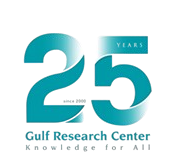Dr. Christian Koch, Director of the GRC Foundation in Geneva, participated in the expert roundtable on “The Kingdom under Pressure: Saudi Arabia’s External and Internal Challenges,” organized by the German Council on Foreign Relations (Deutsche Gesellschaft für Auswärtige Politik – DGAP) together with the Friedrich-Naumann Foundation and held in Berlin, Germany. The event brought together about 20 experts to discuss the current domestic and foreign policy challenges faced by the Kingdom of Saudi Arabia.
Dr. Christian Koch, Director of the GRC Foundation, gave an interview to Dukascopy TV in Geneva on current issues in the Gulf region with regard to the election of US President Trump and US-Gulf relations, the current challenges faced by the GCC states and the status of Saudi Vision 2030.
The three year INCONET-GCC2 Project drew to a successful close in January 2017. Dr. Oskar Ziemelis, GRC Director of Cooperation, Sanya Kapasi and Imen Jeridi Bachellerie represented the GRC Foundation at the final event and meeting of the project. The final event was an International Conference entitled “EU-GCC Research and Innovation Cooperation: The Way Forward” which took place on 29 November 2016 in Brussels and presented the results of the project to about 100 strategic stakeholders from both the EU and the GCC. The conference focused on exploring the way forward in research and innovation cooperation between EU and GCC countries with emphasis on three interconnected axes: i) Supporting bi-regional research and innovation policy dialogue, ii) Capacity building needs and opportunities in the GCC region, and iii) Enhancing research and innovation cooperation between relevant stakeholders, including existing EU networks and the research and business communities. Dr. Ziemelis presented the results of the researcher mobility task to the conference.The GRC Foundation representatives also participated in the concluding project consortium meeting, which took place after the conclusion of the conference on 30 November 2016.
Dr. Christian Koch participated in a conference call organized by the Bertelsmann Foundation in Washington on the topic of “Middle East Policy and Transatlantic Cooperation in a New American Presidency.” The call featured short presentations by Dr. Koch, Amb. James Jeffrey of the Washington Institute and Christian-Peter Hanelt of the Bertelsmann Foundation in Germany. In total, more than 130 people listened to the call which included a question and answer session with listeners. A complete audio recording will soon be available.
Dr. Christian Koch participated in the discussion of the Tawila Middle East Group held in Berlin, Germany. The topic of discussion focused on the status of the diplomatic negotiation over Syria with an assessment about the overall situation presented by Carsten Wieland of the German Foreign Office.
Dr. Christian Koch, Director of the GRC Foundation, held a meeting with H.E. Jasem Mohamed AlBudaiwi, Ambassador of the State of Kuwait to the Kingdom of Belgium and the European Union, in Brussels. The two discussed joint cooperation when it comes to GCC-EU issues and how to promote activities that will strengthen the cooperation between the two sides.

